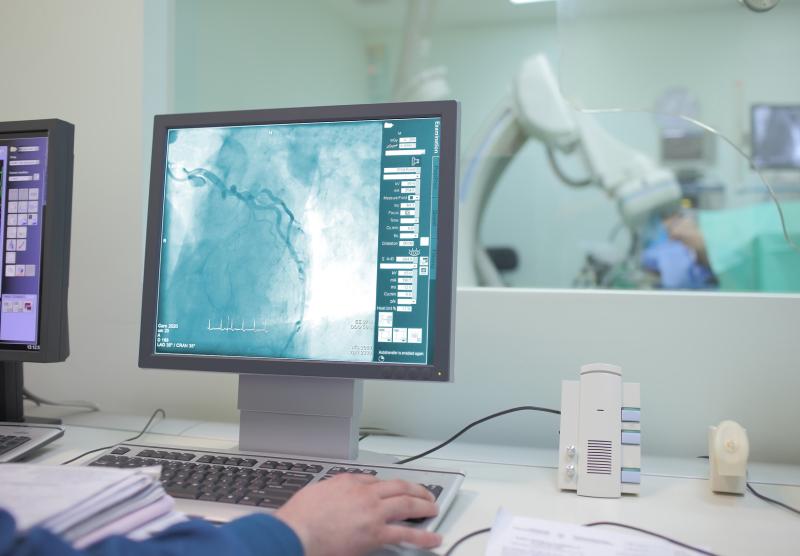
Patients with Crohn’s disease (CD) appear to be at higher risk of developing myocardial infarction (MI), particularly female and younger patients, a study reports.
The study population included 37,477 individuals newly diagnosed with IBD (mean age, 40.4 years; 56.8 percent male; CD: n=10,708; ulcerative colitis [UC]: n=26,769) and 112,431 matched general population controls. Compared with controls, IBD patients had a higher prevalence of hypertension and dyslipidaemia (12.2 percent vs 11.5 percent and 5.6 percent vs 4.9 percent, respectively; p<0.001).
MI occurred in 146 CD patients vs 244 matched controls (incidence rate [IR], 1.64 vs 0.90 per 1,000 person-years) and in 440 UC patients vs 1,193 matched controls (IR, 1.98 vs 1.78 per 1,000 person‐years).
Multivariable Cox analysis revealed that the risk of MI was significantly higher in CD patients than in controls (hazard ratio [HR], 1.80, 95 percent CI, 1.47–2.21), and this trend was more prominent among patients aged <40 years (IR, 0.69 per 1,000 person-years; HR, 2.96, 1.96–4.47) and among female patients (IR, 2.35 per 1,000 person-years; HR, 2.18, 1.61–2.94).
On the other hand, in the UC group, only women had an elevated MI risk (IR, 2.01 per 1,000 person-years; HR, 1.33, 1.13–1.56).
Researchers explained that the larger effect noted in female IBD patients might be related to the more pronounced role of inflammation in coronary heart disease in women than in men. Specifically, women have a higher level of C‐reactive protein. Likewise, the greater magnitude of increase in cardiovascular risk in younger individuals might be attributed to inflammation levels. [J Am Coll Cardiol 2009;54:1561‐1575; Nat Rev Gastroenterol Hepatol 2015;12:26]